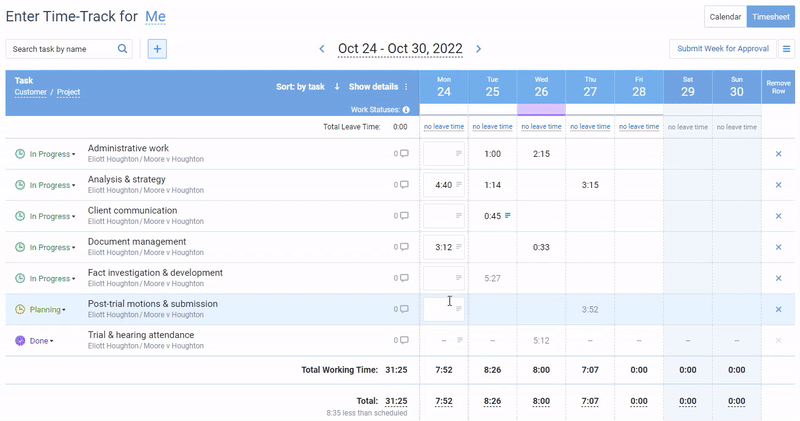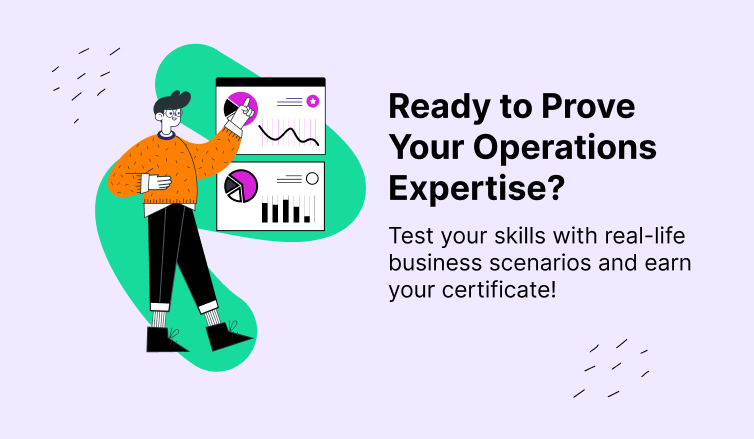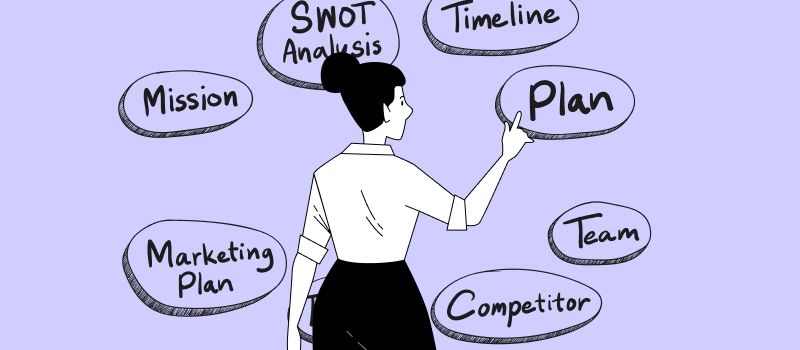
Do you want to become the teacher that your students will always remember? The one they’ll talk about with a smile on their faces years after leaving your classroom? Of course! But sometimes, it can be hard to know where to start when trying to take your teaching skills up a notch.
That’s why we have gathered 18 tried-and-true tips on how to be a good teacher – use them to become a great professional who makes a positive impact on students’ lives.
-
- Show enthusiasm and passion for teaching
- Care about your students’ growth
- Develop strong relationships with students
- Be organized
- Implement effective instruction methods
- Make it simple
- Communicate clearly and consistently
- Keep up with technology
- Make learning meaningful
- Make learning fun
- Promote collaboration
- Be patient
- Know your subject in and out
- Embrace diversity
- Lead by example
- Create a safe learning environment
- Reflect and review
- Take care of yourself
🤩 Show enthusiasm and passion for teaching
Becoming a good teacher requires more than just a degree and dedication to the trade. It takes enthusiasm and passion for teaching that empowers students in their learning process.
A passionate teacher is one who can captivate and engage others. They have the ability to turn run-of-the-mill topics into platforms that are interesting and exciting to learn from. Their deep love for education shines through in their lesson plans, tone of voice during lectures, and their rapport with students.
So, let your teaching journey be one of joy and exploration – you never know what heights of enlightenment you can reach by inspiring others!
🌱 Care about your students’ growth
Showing your students that you are invested in their educational journey and have their best interests at heart can go a long way in helping them grow and learn. From regularly checking in with students to having an open-door policy for questions or concerns, teaching with care is something every educator should strive for.
❤️ Develop strong relationships with students
“The best advice I ever received when I first began teaching was to remember that I don’t teach English; I teach children. That means it is not enough to know my subject matter. I need to know my students and find ways to help them connect with learning. Some days I succeed. On other days I feel defeated. But every day is a new day (for my students and for me).” – Blakely Lord, an English teacher in Boone, North Carolina
Truly good teachers go beyond surface engagement with their students, building a genuine connection that allows for challenging conversations that teach critical thinking skills.
A good teacher understands the importance of earning students’ trust, so they are open to difficult discussions. Thus, a good teacher provides meaningful feedback that fosters students’ growth and development and creates an atmosphere of respect and collaboration.
By respecting their students and creating strong relationships with them, good teachers foster a safe space for learning, which allows everyone to thrive in the classroom.
📑 Be organized
Musings aside, being organized helps teachers develop properly structured and well-thought-out lesson plans, ensure they have all the materials they need, keep students focused on learning, and track their progress with more ease.
If a teacher starts off their class in disarray or late, students may begin to question whether they can trust their teacher’s correctness. On the other hand, if you’re well-organized, it translates into students’ confidence that whatever learning is happening in the classroom is reliable.
Therefore, make sure to use proven work management tools like to-do lists, online tracking systems, and digital planners to stay on top of your teaching game. And in case you ever find it difficult to choose which tool to apply in work, consider actiTIME. It allows you to plan out tasks while gaining insights into how much time you spend on them.
Using actiTIME weekly work schedules, you can set yourself up for success and track your working hours meticulously – so you know precisely how long it took you to teach that class or grade that student’s paper.
Don’t let your hard work fly under the radar – never fail to keep tabs on just how much effort you’re putting into your profession with actiTIME!

🧑🏫 Implement effective instruction methods
Gone are the days of standing at the front of the class reciting from textbooks, as technology has opened us up to more interactive instruction methods that draw on visual aids and tangible examples. Utilizing these teaching strategies engagingly will set you apart from other teachers and make your classroom bubbling with enthusiasm for learning.
Incorporating lectures, discussions, team activities, and hands-on experiments are all great methods for facilitating learning in the classroom. However, it’s essential to consider the different ways that work best for each group of learners you may have. This way, you will ensure your teaching is impactful and engaging.
👐 Make it simple
“Too often, teachers forget that their nuanced understanding of a concept is far beyond the level of understanding of a complete beginner. And they lack the ability to meet their students at the level where they understand a given topic. When I teach today, the first question I ask myself is, “When I was learning this concept, what were the difficulties I faced?”. This way, I begin to uncover my students’ frustrations that might be difficult for them to articulate.” – Chuky Ofoegbu, a tutor and lifelong educator
By simplifying your instruction, you guarantee that students of all learning abilities can make sense of the messages you’re trying to convey. This doesn’t mean dumbing down a lesson for every student – it means having the flexibility to tailor each lesson plan to the particular person’s needs and levels.
But no worries, you don’t have to sacrifice an edge by taking this approach! Even when simplified, lessons can still remain engaging and creative.
📢 Communicate clearly and consistently
Great teacher knows how to make themselves heard, not just literally but also figuratively speaking. They understand that their pupils have different needs, personalities, and items of focus and use language that speaks different minds and can draw out the best in each student.
Whether you’re standing in front of the class lecturing, holding one-on-one consultations, or simply passing on information, the key to success is being able to articulate your ideas and objectives clearly and unambiguously. That’s why effective communicators always make better teachers: when students know exactly what expectations their instructors are holding them to, it eliminates confusion and stress – the two things that don’t lend themselves very well to learning.
So remember: if you want to be a great teacher, start by mastering the art of making yourself understood. Truer words were never spoken!
🤖 Keep up with technology
Teachers in today’s digital age must know how to use various digital resources and tools to give students an engaging educational experience. For example, without at least basic proficiency in using smart boards, online learning platforms, and other software solutions, it becomes harder to showcase lecture materials or assign tasks in creative and up-to-date ways.
Technology has become a part of the everyday life of most students. Thus, understanding its application in the field of teaching is essential for educators who want to make a lasting impact.
👍 Make learning meaningful
As an educator, you can help students to absorb and retain the material more readily by showing them how to make connections between their learning experiences and real-life applications. This not only encourages meaningful learning throughout the class but also demonstrates that you, as a teacher, care about honing their existing skills and developing new ones that they can take with them even after they leave your classroom.
🎉 Make learning fun
“The best teachers are people who can inspire. If you can inspire your students, the learning will follow. Therefore, my one piece of advice to any teacher would be to focus on coming up with lessons that capture your students’ imagination. This often involves engaging and hands-on experiments and projects.” – Dr. Chris Drew, a teacher with a Ph.D. in Education, the founder, and editor of the Helpful Professor website
Putting extra effort into making lessons engaging and interesting helps create an environment that fosters curiosity and excitement about the lesson material. Whether it’s adding elements of play with classroom games or using a song to get everyone excited about the topic, taking innovative approaches to make learning stimulating builds an atmosphere of positive reinforcement and encourages meaningful participation from all your students.
🤝 Promote collaboration
Encouraging students to work collaboratively teaches them problem-solving, critical thinking, and even the art of compromising. It also develops camaraderie within the classroom, which can result in shared pride for each student’s accomplishments and give everyone a greater feeling of satisfaction when course objectives or goals are met.
It’s worth mentioning that collaboration isn’t just a crucial skill for students – teaching faculty can also benefit from collaboration with colleagues as it helps stay current on different techniques and brainstorm ideas for class enrichment activities. In other words, collaboration with other teachers is one effective way to become a more well-rounded educator.
🧘 Be patient
Teaching is more than just providing information and guidance. It requires empathy, understanding, and an open heart. Thus, to become an excellent teacher, you must learn the art of being patient – because, let’s face it: everyone learns differently, and that takes time!
If you don’t quickly learn how to stay calm, cool, and collected during those hectic classroom hours, then who knows how things could turn out… (it’s kinda like tossing a hand grenade into a lake).
Remember: when faced with students that challenge your understanding or you’re feeling like you’re failing to keep up with the ever-increasing demands of the teaching profession, patience can be the factor that makes or breaks your day. So, do whatever it takes to stay patient at all times – even when everything seems to go wrong. It will get easier in the end!
🧠 Know your subject in and out
If you aspire to be an excellent teacher, then it’s your job to be the fountain of knowledge in a classroom. Knowing your subject inside and out will help you teach it effectively, as well as answer any questions your students might have with ease. It’s also important to stay up-to-date on the latest developments so that you can adjust and adapt your lessons for maximum engagement.
🌈 Embrace diversity
“What has to be paramount in our teaching is the emphasis on relationships with our students. We MUST be able to understand the social-emotional well-being of each student and to prioritize the students’ cultural capital that they bring into the classroom. This is a major tenet of culturally responsive teaching, where we ensure that our students feel seen and included in their instruction. And the best way to do this is for teachers to connect with their students and their families. This vital bridge will ensure a sense of belonging for students.” – Dr. Leena Bakshi, a Professor of Pre-Service Teachers from Claremont Graduate University, the founder and Executive Director of STEM4Real
A classroom full of diverse learners presents an opportunity to gain insights, explore multiple perspectives and experiences, and enrich their knowledge. It can open up fascinating discussions, constructive debates, and the chance to understand various beliefs, values, cultures, and backgrounds – all in pursuit of a common goal of learning. It also serves as a reminder that differences should be celebrated and embraced instead of being a source of conflict or divisiveness.
After all, when we learn from each other’s experiences and work together towards our goals with respect for our differences, there’s practically nothing we can’t accomplish!
🦸 Lead by example
A good teacher must live their values, model professionalism, and set an expectation for excellence so that their students are inspired to do the same. When a teacher’s actions speak louder than words, it shows that they believe in what they are teaching and care about developing the next generation of leaders in whatever field it may be.
🌞 Create a safe learning environment
“Good teachers are purveyors of the spark – that moment when everything clicks for your student(s). And learners who need that spark will not always present themselves obviously. You need to be vigilant of their needs without zeal and remember that silence is not a reliable measurement of comprehension. Often when students are silent after a question, it’s because they’re receiving and processing information with the added perceived pressure to respond correctly. That’s why it’s vital to make your classroom a safe place to fail so that your students pursue learning not knowing.” – Nathalie Galde, an improvisation teacher at The Annoyance Theater
Creating a safe learning environment is an important part for any teacher to master. How do you do it? By listening to your students, addressing their concerns, and fostering an atmosphere of respect and equal treatment.
A good teacher will take the time to make sure his or her students feel comfortable participating in class discussions and expressing their opinions without fear of judgment. Through open lines of communication, you can work with your students to ensure everyone contributes with thoughtfulness and confidence.
This doesn’t happen overnight – it’s all about building relationships through trust that, over time, establishes an environment in which everyone feels safe speaking up and fully engaging in the lesson at hand.
🤔 Reflect and review
“We become good teachers by doing. It takes time and practice. Most, if not all, teachers have a pretty terrible first year. Managing the classroom, the planning, and the grading can be all-consuming at first, but over time we develop our own efficient ways that feel natural and authentic to us. It is a hands-on process.” – Liz Daly, a certified high school English teacher in the state of New Hampshire
Becoming a great teacher is no small feat, but any aspiring educator must understand that progress isn’t going to be made in one giant leap – it’s often work that gets done in daily increments.
This means taking time to reflect on your teaching methods and extending the effort to make adjustments. Patience and awareness are key, as is the readiness to take educated risks with your instructional strategies for the best possible learning experience for your students.
🥕 Take care of yourself
You know the saying: “You can’t fill someone else’s cup unless yours is full!” Therefore, if you want to become a successful teacher, make sure your own needs are being taken care of. This could mean exercising regularly, getting enough sleep at night, eating healthy foods, and taking a few moments for yourself every day.
Eating well and having adequate self-care activities prevents burnout from those long hours spent in the classroom and guarantees that your students reap the benefits of a happy and dedicated teacher!
Conclusion
18 tips seem like a lot, and we hope you’ll find at least one or two that resonate with you. The bottom line is this: good teaching comes from the heart. It’s hard work, but it’s also hugely rewarding. Try out different techniques and see what works best for you and your students. With these guidelines in mind, you’re sure to be on your way to becoming the best teacher you can be.












































